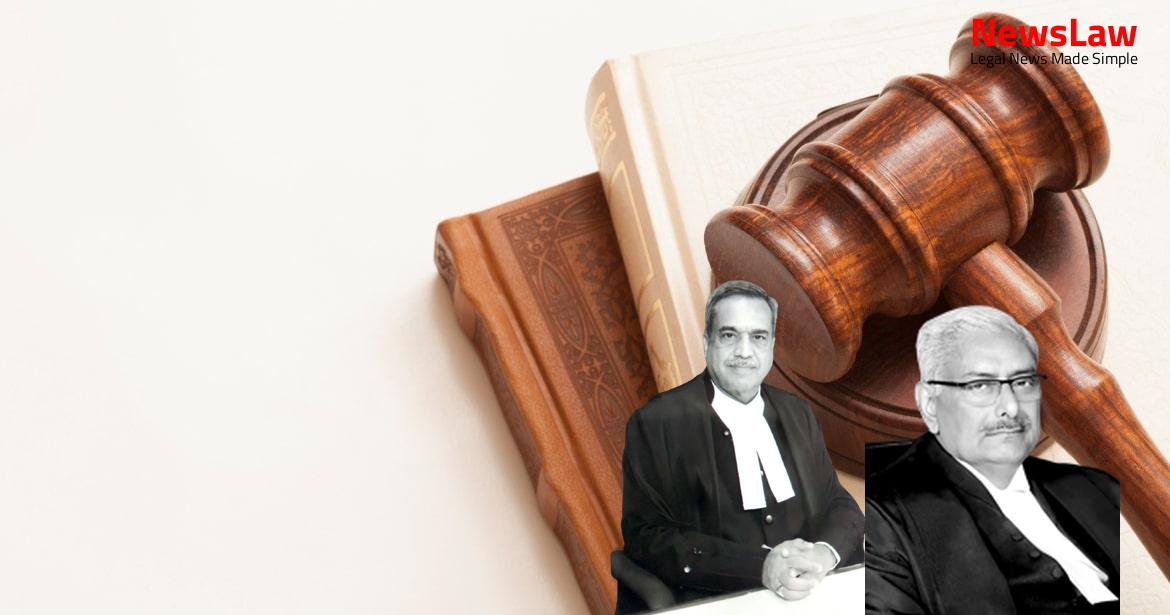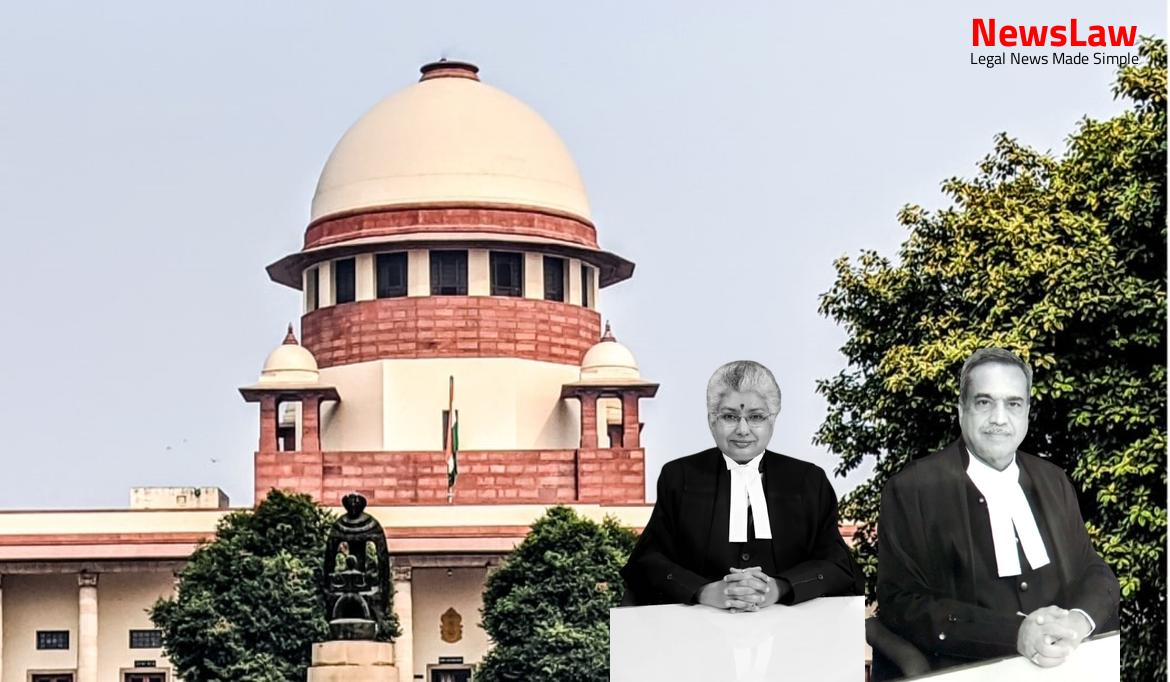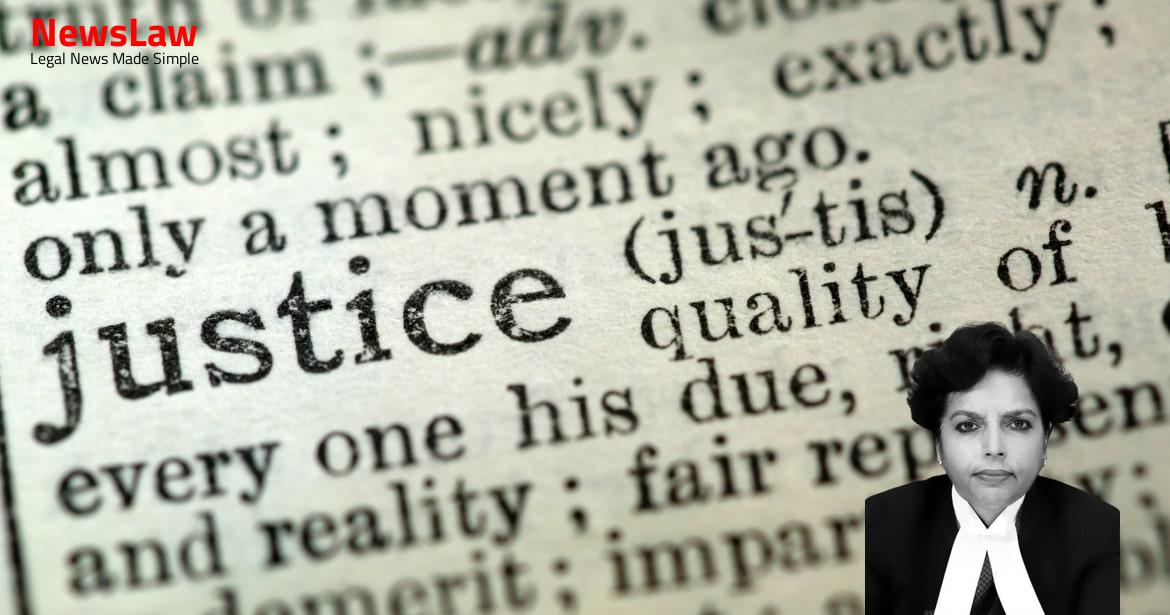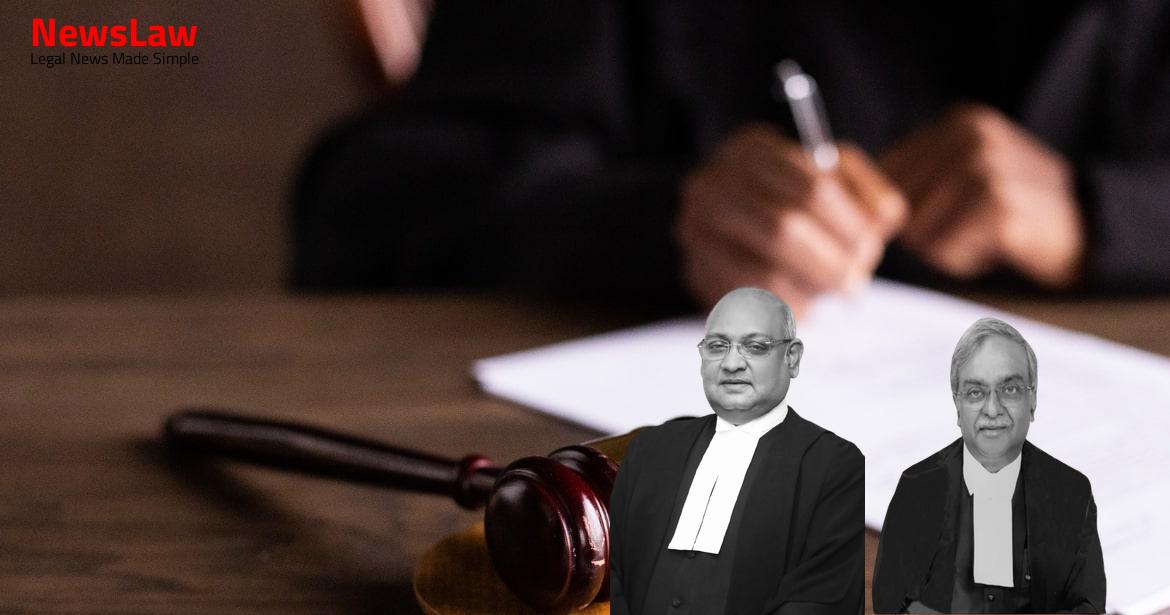In a landmark legal case, the Supreme Court of India has issued a crucial ruling on the directive for a CBI inquiry against an Army officer. The case involved complex legal arguments and jurisdictional considerations, leading to an important decision that impacts the realm of justice. Stay tuned to discover the detailed analysis and implications of this groundbreaking judgement.
Facts
- Smt. Junu Gayary, a young widow, filed a writ petition for a judicial enquiry into the death of her husband, Someswar Gayari alias Sombrom.
- The original respondents denied bringing any civilian to Bhabanipur Army Camp as claimed by the petitioner.
- The petitioner’s husband was allegedly taken by military personnel to the camp and later found dead in an encounter.
- The appellants contended that the husband was killed in an encounter on 30.08.2003.
- The writ petition sought compensation of rupees six lakhs for the petitioner and her family.
- The High Court directed the District & Sessions Judge to submit a report regarding the circumstances leading to the disappearance and death of Someswar Gayari.
- The District & Sessions Judge found that Someswar Gayari was picked up by army personnel from Dilbahadur Chetry’s house on a specific night.
- The High Court, upon review of the evidence, concluded that the deceased was in the custody of the Indian Army and may have been killed while in their custody.
- The High Court ordered further investigation into the matter by registering a criminal case for the offense punishable under Section 302 of the IPC.
- The Central Bureau of Investigation was directed to undertake the investigation to ensure that the real culprits do not escape unpunished.
Also Read: Address Update Requirement: Legal Implications for Corporate Entities
Arguments
- The learned Senior Advocate appeared on behalf of the appellants.
- The impugned judgment and order passed by the High Court were considered.
- There was no reason seen to interfere with the impugned judgment and order.
Also Read: Army Discharge Case: Upholding Justice for Long Service Rendered
Analysis
- The High Court rightly directed to register a criminal case under Section 302 of the IPC for the death of Someswar Gayari.
- CBI was rightly directed to undertake the investigation due to the gravity of the offense committed.
- No appearance was made on behalf of the respondent despite service of notice, leading to an Article 142 intervention for substantial justice.
- The compensation amount was enhanced to rupees five lakhs to be deposited with the Gauhati High Court Registrar for the deceased’s family.
- The original writ petitioner retains the right to pursue additional legal remedies despite the compensation award.
- The dismissal of appeals challenging the High Court’s decision to register a criminal case and involve CBI was warranted.
- CBI was instructed to promptly conclude the investigation into the death of Someswar Gayari.
- The report by the learned District & Sessions Judge highlighted that the deceased was in army custody and the army attempted to falsify the circumstances of his death.
- Specific findings of Article 21 violation supported the High Court’s decision for criminal case registration and CBI investigation.
- Awarding rupees five lakhs as compensation was deemed in the interest of justice, exceeding the previous award of rupees three lakhs, which was considered low.
- The case involved an appeal against the order of the High Court which had directed a CBI inquiry against the appellant.
- The appellant, who was the General Officer Commanding, challenged the High Court’s order on various grounds.
- One of the primary contentions raised by the appellant was that the High Court did not have the authority to direct a CBI inquiry against a serving Army officer.
- The appellant also contended that the allegations against him were vague and unfounded, and the High Court had exceeded its jurisdiction in ordering a CBI probe.
- The Supreme Court examined the legal provisions and previous judgments related to the jurisdiction of the High Court in such matters.
- After a detailed analysis, the Supreme Court held that the High Court had overstepped its jurisdiction in directing a CBI inquiry against the appellant.
- The Court observed that the High Court should have given the opportunity to the appropriate authority to consider the allegations before ordering a CBI probe.
- Therefore, the Supreme Court set aside the High Court’s order and quashed the CBI inquiry against the appellant.
Also Read: Supreme Court Judgement on Maharashtra Prevention of Dangerous Activities Act, 1981
Decision
- The Chief Judicial Magistrate is directed to decide whether the trial will be by a criminal court or court martial within eight weeks of the charge sheet being filed.
- If the option is for a court martial, proceedings should start immediately and be conducted expeditiously.
- If the option is for a criminal court trial, CBI must apply for sanction from the Central Government within four weeks of receiving the option.
- The Central Government has eight weeks to make a decision on the sanction application.
- If sanction is granted, the criminal court should proceed with the trial promptly and conclude it expeditiously.
Case Title: UNION OF INDIA Vs. JUNA GAYARY
Case Number: C.A. No.-003669-003670 / 2015



